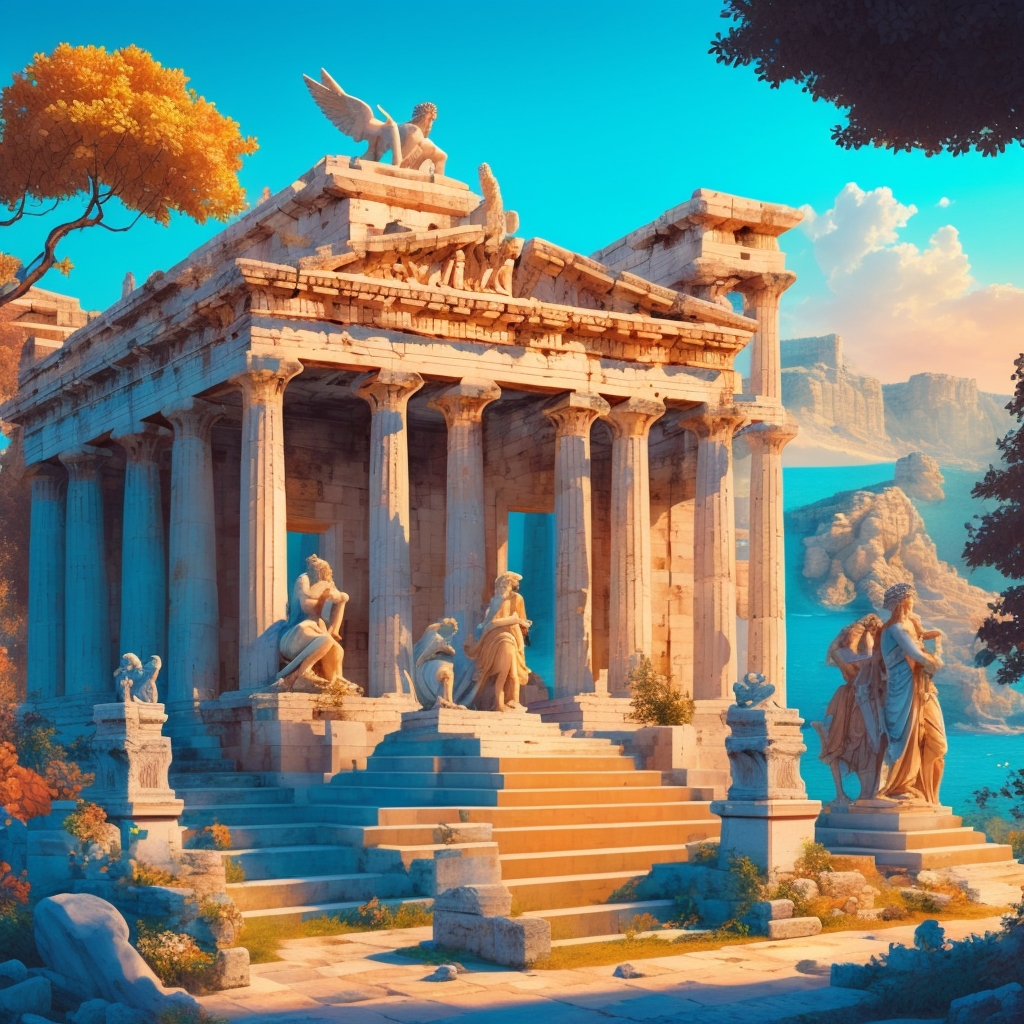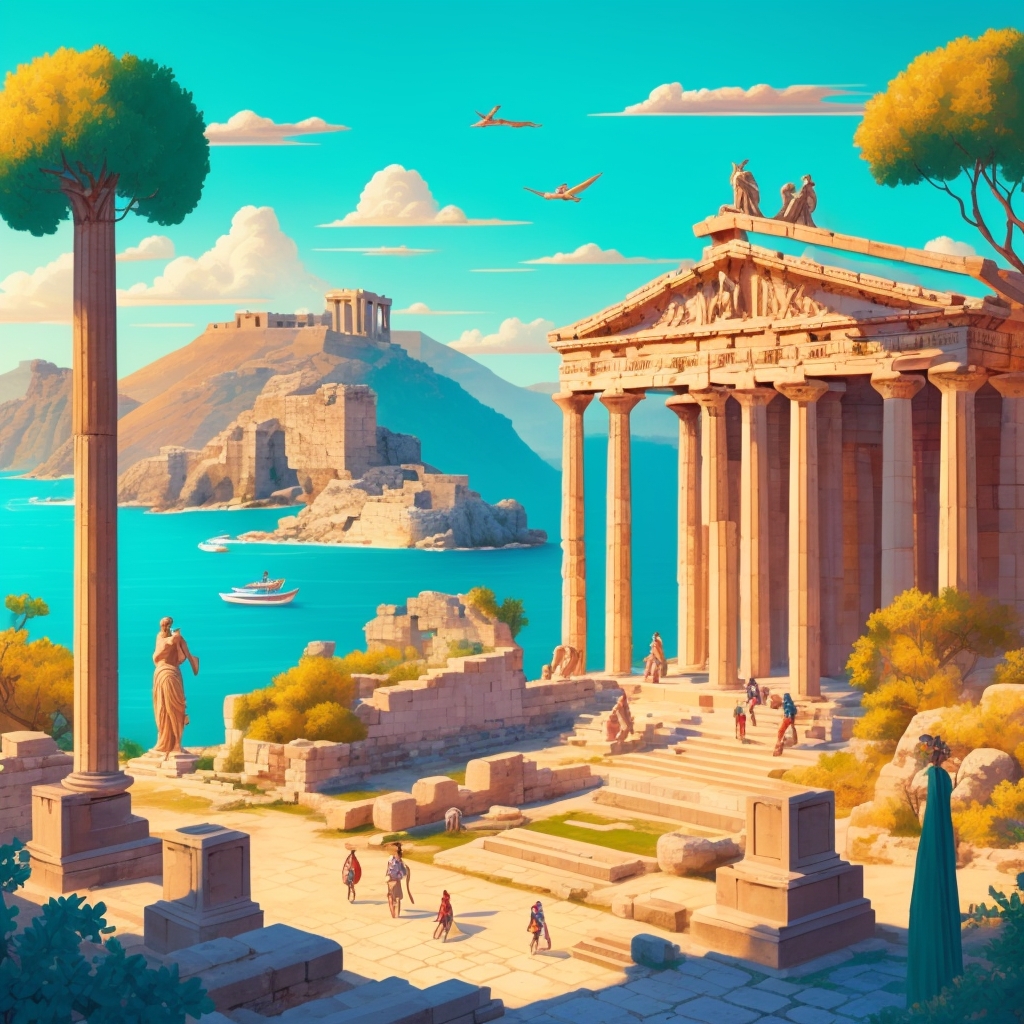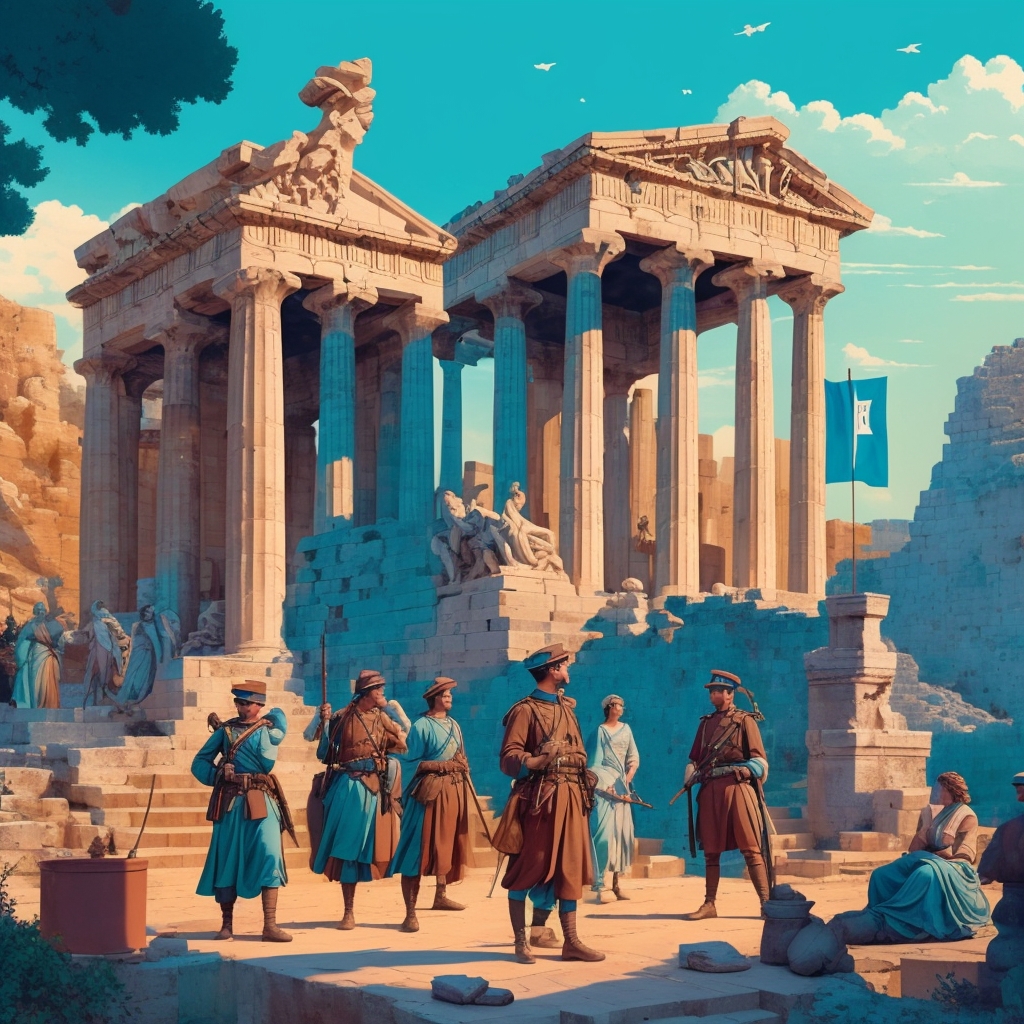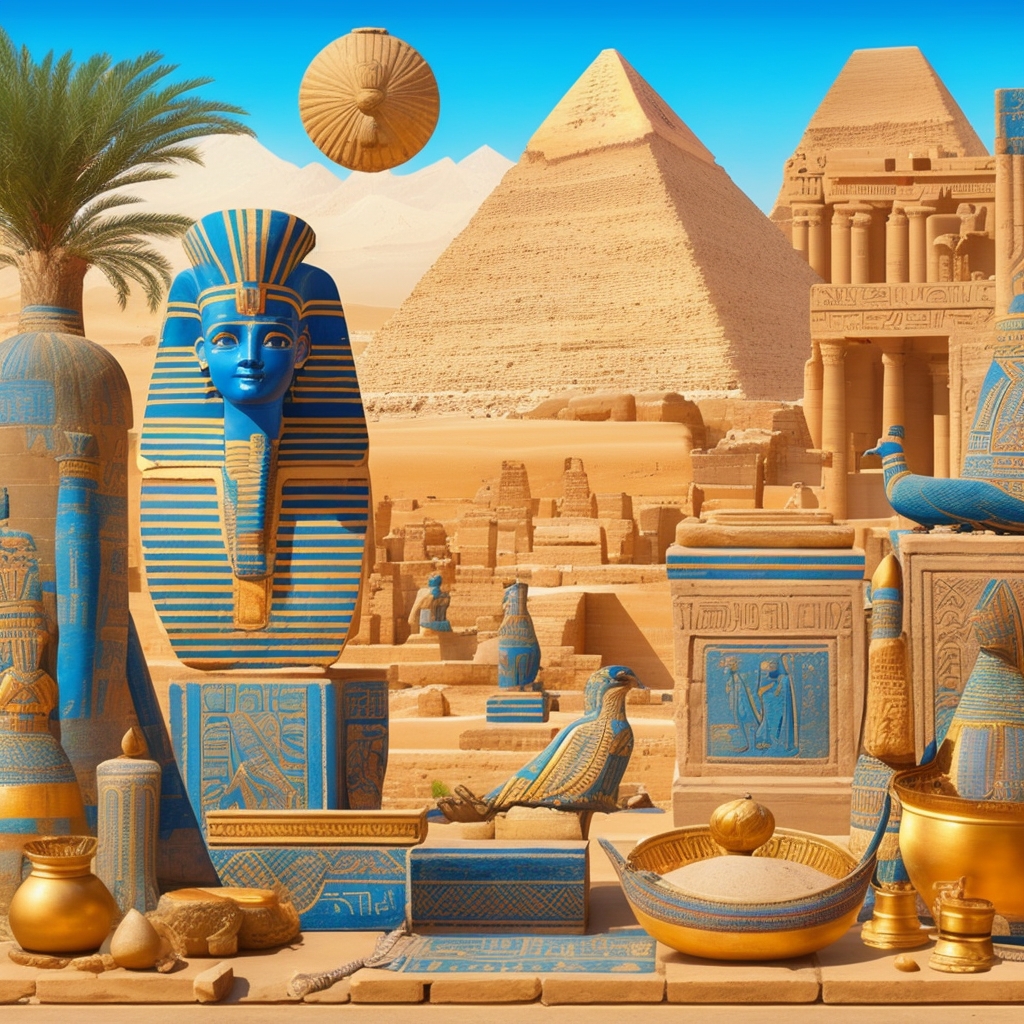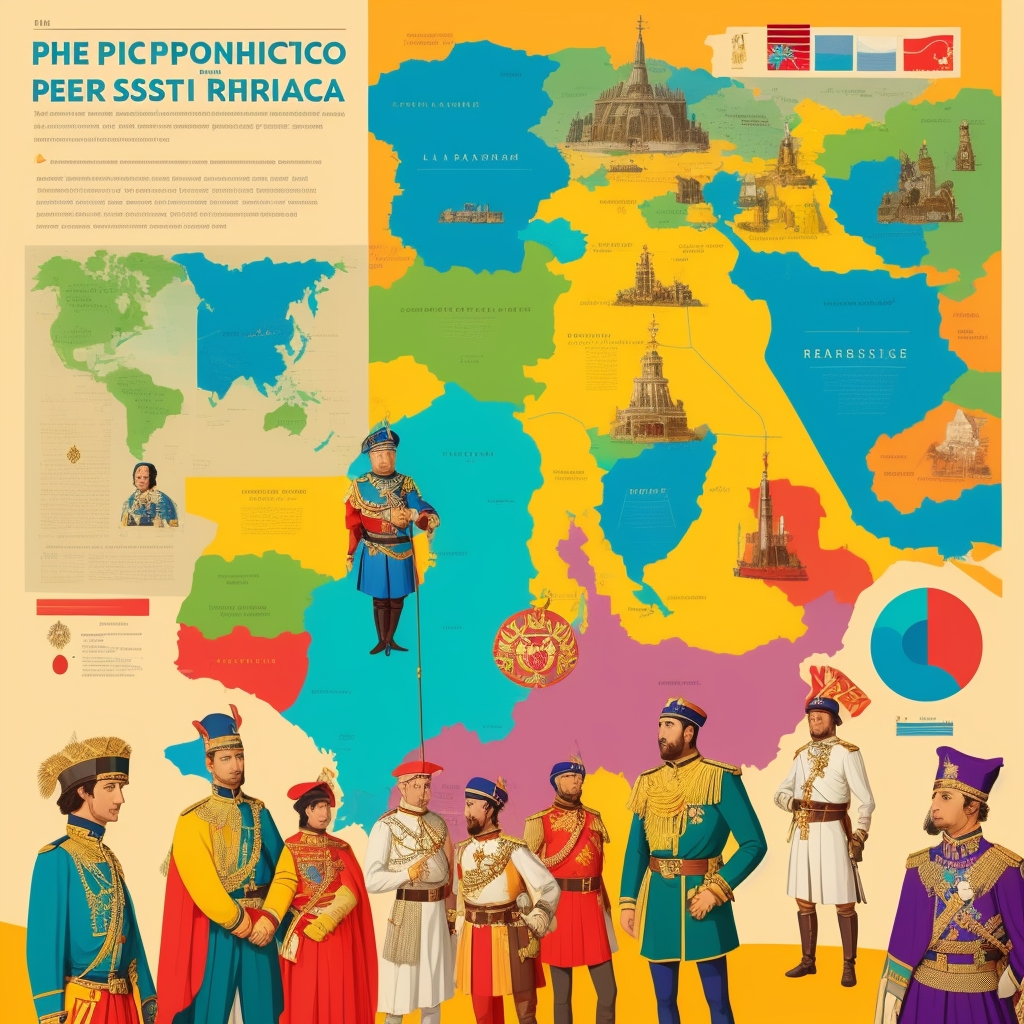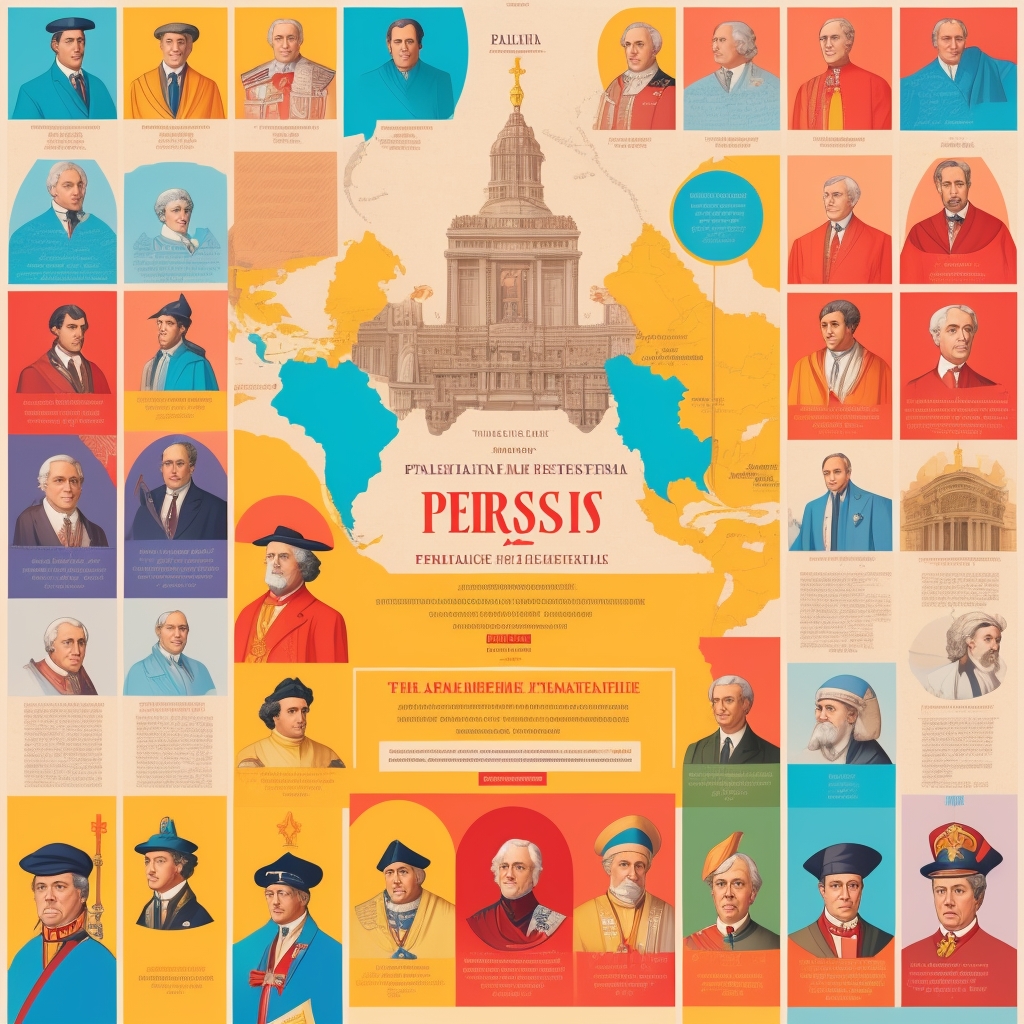Greek mythology was a foundational pillar of Ancient Greek culture. It not only influenced literature, art, and philosophy but also played a central role in the everyday life of Greek citizens. Mythological stories helped explain natural phenomena, social structures, and cultural values. In this article, we’ll explore how mythology shaped Ancient Greek society and continues to impact modern civilization.
Mythology as an Explanation of Natural Phenomena
In ancient times, mythology served as a narrative framework to explain the forces of nature. The Greeks used myths to understand phenomena they couldn’t otherwise explain.
For instance:
- Thunder and lightning were believed to be signs of Zeus’s anger.
- Earthquakes were attributed to the movements of Poseidon, god of the sea.
These stories transformed fear into familiarity by turning nature into characters and stories that people could relate to.
Seafaring myths were especially significant, as many Greeks depended on the sea for trade and food. Festivals and rituals honoring sea gods were common and were believed to ensure calm waters and successful fishing trips.
Mythology as a Moral and Social Foundation
Greek mythology also served as a moral compass and cultural guideline. Stories of gods and heroes were used to:
- Teach virtues like courage (Heracles’ labors),
- Warn against hubris (arrogant pride) and show the consequences through nemesis (divine punishment).
These narratives helped enforce social norms and ethical behavior by demonstrating that even the powerful were subject to justice.
“In myth, every triumph and failure had a lesson.”
Mythology in Religious Practices
Religion and mythology were inseparable in Ancient Greece.
Temples and Worship
Temples such as the Parthenon (dedicated to Athena) were more than architectural marvels — they were active centers of worship. Greeks believed that gods directly influenced human affairs, and rituals were performed to seek their favor.
Festivals and Ritual Theater
Public religious festivals — like the Panathenaic Games or Dionysia — included:
- Processions
- Animal sacrifices
- Dramatic reenactments of mythological stories
These events unified the community through shared beliefs and reinforced cultural identity.
Concrete Examples and Case Studies
The Olympic Games
One of the most iconic legacies of Ancient Greece, the Olympic Games, were mythologically rooted. Legend attributes their creation to Heracles. The games were dedicated to Zeus, and included sacred rituals alongside athletic competition. They were both a sporting and spiritual celebration.
Homer’s Odyssey
Homer’s Odyssey is a masterpiece of mythological storytelling. It explores universal themes like adventure, struggle, and identity through the journey of Odysseus, whose encounters with gods and monsters reflect the human condition and the values of Greek society.
Key Takeaways
- Historical context matters: Myths were more than stories — they reflected the historical, political, and social dynamics of the time.
- Embedded in daily life: Mythology influenced religion, ethics, law, and even city planning.
- Educational power: Myths taught life lessons, shaped character, and transmitted cultural norms to younger generations.
FAQ
Why was mythology so important to the ancient Greeks?
Because it helped them explain the world, uphold social order, and create a shared identity through religion, tradition, and cultural memory.
How did mythology influence Greek politics?
Myths were used to legitimize political authority. Rulers often claimed descent from gods, and heroic ancestry strengthened their claim to power.
Were myths the same across Greece?
No — myths varied between city-states. Each region had its own local deities, temples, and myth versions that reflected regional values and history.
What’s the link between mythology and philosophy?
Greek mythology raised foundational questions about fate, morality, and the nature of gods. Philosophers like Plato and Aristotle responded to or reinterpreted mythological themes in their work.
Does Greek mythology still influence us today?
Absolutely. Modern literature, psychology (e.g. Oedipus complex, narcissism), art, cinema, and language are filled with references to Greek mythological figures and stories.
Conclusion
Mythology played a central role in ancient Greek society — as a source of explanation, a moral framework, and a unifying cultural force. It shaped how Greeks understood nature, organized society, and practiced religion. Even today, its influence echoes across art, science, psychology, and storytelling.
Greek mythology wasn’t just fantasy — it was the lens through which an entire civilization saw the world.
